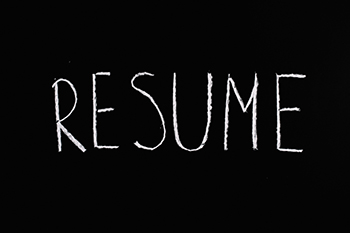How To Make / Build A Resume: Online Jobs
Do you want to work from home? Are you looking for a job that you can do online? If so, then you need to build a resume that is designed for an online job. In this blog post, we will show you how to do just that. We will provide you with tips and advice on how to make your resume stand out from the rest. Plus, we will give you some helpful resources that will make the process a lot easier! For more information to help you with your job search, check out our other articles in our Job Searching category!
What is a Resume?
A resume is a document that outlines your skills, experience, and qualifications. It is typically used when applying for jobs. Your resume should be tailored to the specific job you are applying for. This means that you will need to highlight the skills and experience that are relevant to the position.
Employers also look for a sign of commitment. If you move on to the next job from different companies or locations too often, then this can be seen as a lack of stability. You won’t need to list your gender identity or sexual orientation to find jobs either for an equal opportunity employer. This even protects you from national origin discrimination when you search jobs and look to join a team.
Why Do I Need a Resume?
A resume is often one of the first things an employer will look at when considering you for a position. It is your chance to make a good first impression and stand out from the competition.
A resume can also be a useful tool for networking. If you meet someone who could be helpful in your job search, you can give them your resume so they have all of your information in one place. For companies to have a better understanding of how you will support or assist their business, build a resume that outlines your skills and experience.
Depending on your location, you can search for jobs and have access to the same Google services that employers use for their site online. For the best experience, search for future jobs that you can commit to for an extended period.
History of the Resume
Before there was Google and the internet community we have today, careers were made through personal relationships and word-of-mouth. The process of finding a job consisted mostly of networking, as most jobs were never publicly listed. Because of this, resumes were not necessary. Your resume was your reputation, and it was either good or bad.
The first use of the term “resume” is in a letter written by Leonardo da Vinci in 1481 when he applied for an engineering position with Duke Ludovico Sforza, ruler of Milan. In his letter, da Vinci briefly outlines his skills as an artist and an architect. He does not go into great detail about his experience or accomplishments because he assumes that the Duke is already familiar with his work. This is similar to the way you would assume that a potential employer is already familiar with your work if you are applying for an online job.
How to Get Started with a Resume
When it comes to an online job, you will want to make sure that your resume is error-free and easy to read. You will also want to include keywords that are relevant to the position you are applying for.
If you have a lot of experience, then you may want to consider using a chronological resume format. This will allow you to list your experiences in chronological order, starting with your most recent experience. If you do not have a lot of experience, then you may want to use a functional resume format. This type of resume will focus on your skills and abilities instead of your work history.
When you are writing your resume, be sure to use clear and concise language. Avoid using jargon or buzzwords that the hiring manager may not be familiar with.
Differences in an Online Job Resume
If you are applying for an online job, then you will want to make sure that your resume is optimized for applicant tracking systems (ATS). Many companies use these systems to screen resumes and determine which candidates will move on to the next stage of the hiring process.
To do this, you will want to use keywords that are relevant to the job you are applying for. For example, if you are applying for a job as a web developer, then you will want to include keywords such as “HTML”, “CSS”, and “JavaScript”.
You should also avoid using any images or graphics in your resume as these can often be incompatible with ATS systems. Finally, make sure that you save your resume in a PDF format as this is the most compatible file type with ATS systems.
By following these tips, you can be sure that your resume will stand out from the rest and that you will have a better chance of being invited to the next stage of the hiring process.
How to Search Jobs and Set Up Job Alerts
Google has a ton of customers that search for jobs by location and a way to get ahead of the competition is by using job alerts. When you sign up for a job alert, you can focus on what matters when you’re applying rather than worrying about whether you’re missing out on any great opportunities.
To set up a job alert, go to the Google Jobs homepage and enter your preferred locations, job title, and other relevant keywords. Then, click “Create.” You’ll start receiving email alerts as soon as new jobs that match your preferences are posted.
Remember to be creative in how you market yourself – don’t just rely on conventional methods like submitting resumes! By thinking outside the box and using some of these tips, you can make sure that your application stands out from the rest. Good luck!
Additional Resources for Online Jobs
There are a ton of online jobs out there and sorting through which ones work for you can seem like a daunting task. Thankfully, there is a wide range of websites that are completely free to use to better help you such as:
The Bureau of Labor Statistics website (BLS): This is a great resource if you’re looking for specific data about certain occupations.
The Occupational Outlook Handbook (OOH): The OOH contains detailed information about what workers do on the job, working conditions, training and education needed, earnings, and expected job prospects in a variety of fields.
My Next Move (MNM): This website is geared towards helping individuals find their perfect career match by taking into account their skills and interests.
O*NET OnLine (ONET): O*NET OnLine has detailed descriptions of the world of work for use by job seekers, workforce development and HR professionals, students, researchers, and more!
These are only a few examples but hopefully, they give you a better idea of where to start your search. Best of luck in finding your next online job!



